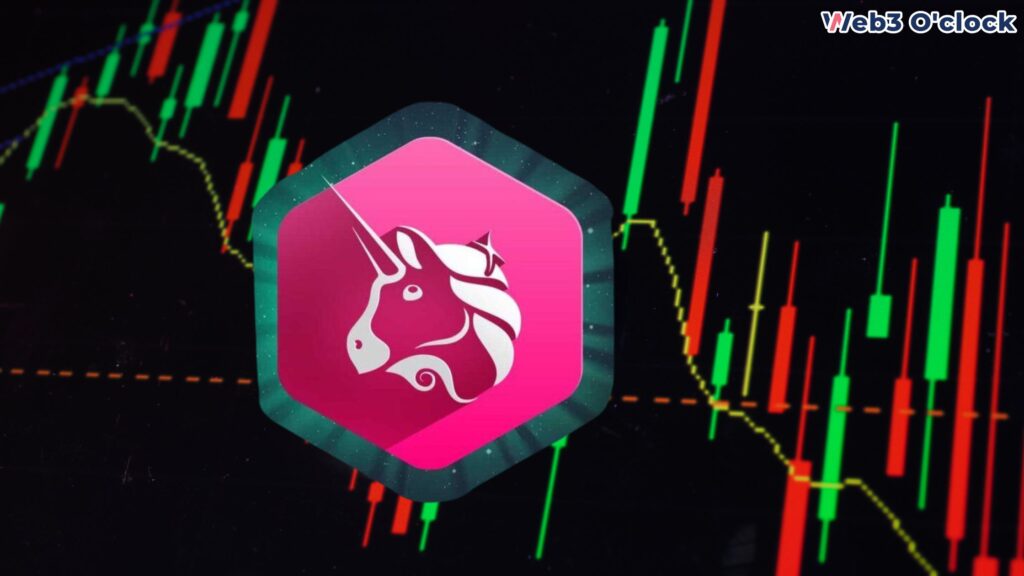Desk of Contents:
- Numerous purposes of DeFi in numerous sectors
- Success tales and progressive DeFi tasks
- Future potential of DeFi purposes
Think about a monetary world the place you not want banks or conventional establishments to handle your cash, take out loans, or make investments. That is the truth that decentralized finance, or DeFi, is bringing to life. DeFi removes intermediaries and permits direct monetary interactions. It’s remodeling finance by making providers extra accessible, clear, and versatile.
On this article, we’ll discover how DeFi purposes are getting used throughout totally different sectors, delve into a few of the most profitable DeFi tasks, and look forward to the place DeFi is perhaps headed sooner or later.
Purposes of DeFi in Totally different Sectors:
Image Courtesy: cystack.net
DeFi’s impression spans throughout varied sectors, every benefiting from the distinctive capabilities of decentralized programs.
1. Lending and Borrowing:
DeFi has reworked lending and borrowing by permitting individuals to lend and borrow belongings instantly with out conventional banks. Platforms like Aave and Compound use blockchain to handle funds securely and transparently. These platforms allow anybody to take part, usually while not having credit score checks or conventional paperwork. By locking up collateral in good contracts, lenders earn curiosity whereas debtors achieve fast entry to funds, making a dynamic lending ecosystem with out intermediaries.
2. Decentralized Exchanges (DEXs):
Decentralized exchanges (DEXs) like Uniswap and SushiSwap allow customers to commerce digital belongings instantly with each other. Not like conventional exchanges, DEXs do not need a government holding customers’ funds. As an alternative, trades happen peer-to-peer, with every participant retaining management over their belongings. This setup enhances privateness, reduces charges, and offers extra transparency since all transactions are recorded on the blockchain. With DEXs, individuals can commerce crypto anytime, with out delays or intermediaries.
3. Stablecoins:
Stablecoins bridge the hole between the volatility of cryptocurrencies and the soundness of conventional currencies. Property like DAI and USDC are pegged to fiat currencies just like the U.S. greenback, giving customers a steady, dependable asset to carry or commerce. Stablecoins have develop into important to the DeFi ecosystem, offering a steady base for transactions, lending, and borrowing. Moreover, they permit reasonably priced worldwide transactions, providing a sensible answer for customers in areas with restricted entry to steady banking programs.
4. Asset Management:
DeFi platforms like Yearn Finance make asset management more accessible and transparent. By using smart contracts, users can invest in different strategies to maximize returns without needing to handle complex processes manually. Yearn Finance, for instance, automates yield farming, which is the process of earning returns on digital assets by moving them between different DeFi platforms. This helps users achieve high yields with minimal effort while retaining complete control and visibility over their investments.
5. Insurance:
DeFi has even entered the insurance industry, providing decentralized insurance options for users. Platforms like Nexus Mutual and Etherisc offer insurance for unique risks in the DeFi world, such as smart contract failures and exchange hacks. These DeFi insurance solutions use community-driven models, allowing users to pool resources, collectively manage policies, and vote on claims. With this setup, DeFi insurance creates a transparent and user-focused model, where fraud risks are minimized, and policies are directly influenced by the community.
Success Stories and Innovative DeFi Projects:

Let’s explore some of the most successful projects in DeFi, each showcasing the innovation and potential of decentralized finance.
1. Uniswap:

Uniswap is one of the most popular decentralized exchanges, using an automated market maker (AMM) model to facilitate peer-to-peer trading. Since its launch, Uniswap has grown to become a key player in the DeFi space, with billions in trading volume. Its success lies in enabling people to trade directly without needing a traditional order book, which simplifies trading and enhances user control. Uniswap’s community-driven governance through the UNI token further empowers users to shape its future.
2. Aave:

Picture Courtesy: publish0x.com
Aave has revolutionized lending by introducing flash loans, a unique form of borrowing where users can access funds instantly without collateral, provided they repay the loan within the same transaction. Flash loans have opened up new opportunities in arbitrage, collateral swapping, and more. Aave’s user-friendly platform also allows borrowers to switch between fixed and variable interest rates, giving them more flexibility in managing their finances.
3. MakerDAO and DAI:

Picture Courtesy: publish0x.com
MakerDAO is the organization behind DAI, a stablecoin that maintains its peg to the U.S. dollar through a system of collateralized assets. Unlike traditional stablecoins backed by fiat reserves, DAI operates in a fully decentralized manner, with its value stabilized by crypto assets held in smart contracts. MakerDAO’s governance model allows its community to participate in key decisions, making it one of the most democratic and resilient projects in DeFi.
4. Yearn Finance:

Picture Courtesy: cardanolibrary.net
Yearn Finance is known for its yield optimization strategies that help users maximize returns on their assets. By automating the yield farming process, Yearn Finance makes it easy for users to participate in DeFi without needing extensive knowledge of yield farming techniques. With its YFI token, Yearn empowers its community members to participate in governance, creating a collaborative environment where users have a direct say in the platform’s direction.
5. Nexus Mutual:

Picture Courtesy: coin98.net
Nexus Mutual is pioneering decentralized insurance by providing coverage for smart contract failures and other risks unique to the DeFi space. As a mutual insurance provider, Nexus operates as a community-driven platform where members can pool funds, decide on claims, and create policies. This model not only increases transparency but also reduces the risk of fraud, as all activities are tracked on the blockchain and governed by the community.
Future Potential of DeFi Applications:

Picture Courtesy: wallasa.medium.com
As DeFi continues to evolve, it has the potential to transform both financial and non-financial sectors in unprecedented ways.
1. Expanding Financial Inclusion:
DeFi has the potential to bring financial services to the unbanked and underbanked populations worldwide. By eliminating the need for traditional financial intermediaries, DeFi can provide people in remote or underserved regions with access to savings accounts, loans, and microfinance. All that’s needed is an internet connection, meaning that DeFi could bridge financial gaps globally, empowering individuals with tools they might not otherwise have.
2. Tokenizing Real-World Assets:
DeFi could make it possible to tokenize real-world assets, such as real estate, art, and commodities, by turning them into digital tokens on the blockchain. Tokenization would enable fractional ownership, where multiple investors can own a portion of a high-value asset. This creates new investment opportunities and enhances liquidity, as tokenized assets can be traded quickly and around the clock. Tokenization could fundamentally change asset ownership, making it accessible to a much broader audience.
3. Decentralized Identity and KYC Solutions:
Future DeFi applications could integrate decentralized identity solutions for seamless, secure identity verification. Traditional KYC processes are often costly and intrusive, but decentralized identity allows users to verify their information without revealing personal details. This enhances privacy, reduces compliance costs, and makes identity management more efficient. Decentralized identity solutions could give users full control over their digital identities, allowing them to verify their information on their terms.
4. Merging DeFi with Traditional Finance:
As DeFi grows, we may see more collaborations between DeFi platforms and traditional financial institutions. Such partnerships could accelerate DeFi’s adoption, making it more accessible to mainstream users while also addressing regulatory concerns. This merger could result in a new hybrid financial ecosystem, combining the best of traditional finance with the innovation of DeFi. Traditional institutions would benefit from DeFi’s technology, while DeFi projects would gain from traditional finance’s stability and regulatory framework.
5. Decentralized Autonomous Organizations (DAOs):
DAOs represent a new model for organizational governance, where decisions are made collectively by token holders through voting. With DAOs, governance is transparent, and users have a direct say in how the organization is run. DAOs are already being used in various DeFi projects, and as they become more popular, they could redefine governance in other industries as well. DAOs could bring a new level of transparency, collaboration, and community ownership to organizations, making them accountable to their users.
DeFi is transforming how we think about finance, making it more accessible, transparent, and community driven. Its ability to remove traditional barriers and empower people to participate directly in financial activities is already reshaping the financial world. The future of DeFi may see expanded use cases and new partnerships, and it’s clear that DeFi is here to stay. So, what’s your take? Could DeFi become the foundation of a new financial world, or is it just the beginning of something even greater?
And if you’re as excited about DeFi, blockchain, and the evolving Web3 universe as we are, join our community! Subscribe to our newsletter for the latest updates, trends, and insights—let’s navigate the world of Web 3 together!
You might also like
More from Web3
Atos Group receives confirmatory offer from the French State to acquire part of its former Advanced Computing business
Press launchAtos Group receives confirmatory provide from the French State to accumulate a part of its formerSuperior Computing enterpriseImaginative …
BitMEX Blocks Lazarus Phishing Attempt, Calls Tactics ‘Unsophisticated’
BitMEX mentioned it has thwarted an tried phishing assault by the Lazarus Group, describing the try as utilizing "unsophisticated" …





![[Latest] TETRA Land Mobile Radio Market 2025 Trends: Challenges and Opportunities [Latest] TETRA Land Mobile Radio Market 2025 Trends: Challenges and Opportunities](https://i3.wp.com/web3wire.org/wp-content/uploads/2025/05/L524789804_g.jpg?w=600&resize=600,454&ssl=1)






